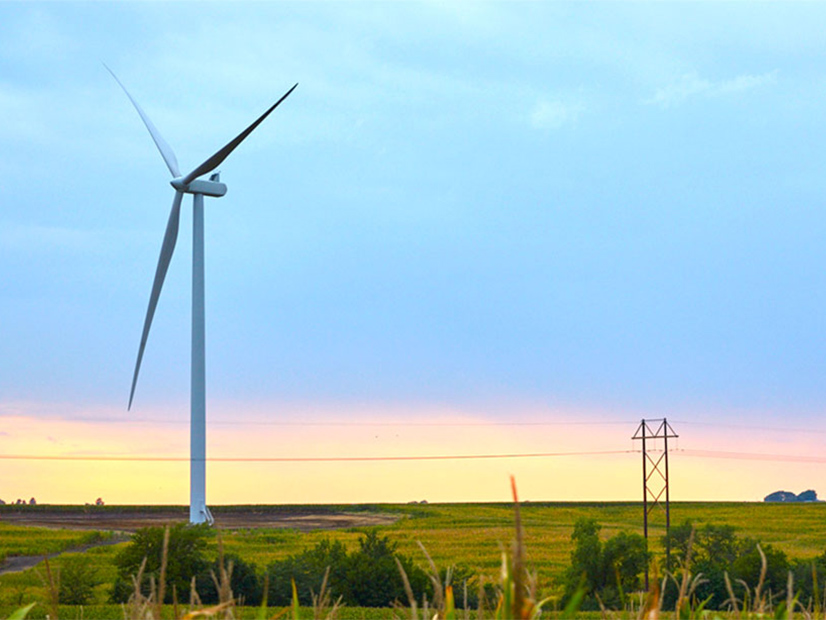FERC on Thursday denied Tenaska’s rehearing request over the alleged curtailment of its Clear Creek Wind Farm, maintaining that the company did not provide sufficient evidence (EL22-59).
Tenaska alleged that SPP, MISO, Associated Electric Cooperative Inc. (AECI) and the Tennessee Valley Authority adopted operating guides that resulted in unduly discriminatory curtailment of the Missouri wind farm it owns and operates. FERC disagreed, denying the complaint in December. (See FERC Denies Tenaska’s Complaints over Wind Curtailments.)
The developer argued that FERC lacked substantial evidence to conclude that the operating guides limit the wind farm pending network upgrades assigned to Tenaska. It said the commission’s conclusion was a “post hoc rationalization” and asserted that the order was an unexplained departure from precedent, relying on SPP and AECI documents as supporting the operating guides.
FERC said that it was not persuaded by Tenaska’s argument, saying it was up to the complainant to present evidence supporting its assertions that the curtailments were unjust and unreasonable, unduly discriminatory or preferential, or inconsistent with the operators’ tariffs. It pointed out that SPP and AECI said the curtailments were consistent with congestion requiring network upgrades assigned to Tenaska and the reason behind the project’s limited operation status.
Tenaska’s argument that the original order was inconsistent with precedent was “misplaced,” the commission said. It said Tenaska’s reliance on Iberdrola v. Bonneville overlooked the fact that the curtailed wind generators in that proceeding “were not responsible for incomplete network upgrades.”
The commission found the project’s curtailments after the required upgrades were identified in an SPP restudy were consistent with the RTO’s generator interconnection procedure (GIP) and not unduly discriminatory.
“Adopting Tenaska’s position would be inconsistent with the structure set forth in the text of SPP’s GIP … and the purposes underlying that provision,” FERC wrote.
The commission said if Tenaska believed that FERC erred because there were curtailments prior to a subsequent restudy that was not justified, it was incumbent on the developer to identify the relevant curtailments and demonstrate that alleged error. “It did not do so,” the commission said.
Facilities Agreements Approved, Rejected
The commission on Tuesday accepted SPP’s unexecuted facilities service agreement (FSA) that the grid operator filed for a 102.6-MW wind farm in West Texas (ER23-342).
SPP, the transmission provider, filed the generator interconnection agreement last year on behalf of transmission owner Southwestern Public Service (NASDAQ:XEL) and interconnection customer Panhandle Solar.
Panhandle protested the GIA’s 20-year term, saying it had proposed a three-year term that SPP rejected. It said that when an interconnection customer is willing to pay the money back faster, a longer term imposes added and unwanted financing costs that are not just and reasonable and merely serve to enrich the interconnecting TO’s shareholders. Panhandle said the 20-year FSA would double the overall amount it paid for the network upgrades under the GIA.
The commission found that the 20-year term was consistent with MISO’s pro forma FSA that FERC had previously approved as just and reasonable. It said that 20 years allow SPS to recover its return of and on capital invested in network upgrades based on the term over which the utility will likely provide interconnection service to Panhandle. It also gives Panhandle a shorter period to pay depreciation expenses than the recovery period based on useful service life, FERC said.
“We find it reasonable to expect interconnection service under the Panhandle GIA to match or exceed 20 years,” the commission said.
FERC noted that Panhandle acknowledged that the “initial terms of GIAs often do extend 20 years … based on how long the generating facility in question is expected to operate.” They pointed out that Panhandle had not expressed any intention to take interconnection service only over the GIA’s initial 10-year term.
FERC also on Tuesday rejected an FSA filed by SPP last year, this one for TO ITC Great Plains and interconnection customer Pixley Solar Energy (ER23-155).
The commission found the agreement to be unjust, unreasonable and unduly discriminatory or preferential. It disagreed with ITC’s assertion that the Mobile-Sierra doctrine, which mandates respect for private contracts by shielding them from regulatory interference except when necessary in the public interest, applied to the FSA as executed.
FERC said the ordinary just-and-reasonable standard applies when the parties “explicitly reserve their rights to seek modifications to their contracts,” indicating that they “specifically negotiated and contemplated that their contracts could be modified” based upon the ordinary J&R standard.
“Those findings apply here,” the commission said, pointing to the FSA’s language that states “nothing in this service agreement shall limit the rights of the parties or of FERC under Sections 205 and 206 of the [Federal Power Act] and FERC’s rules and regulations thereunder.”
The commission also said ITC’s recovery of additional expenses that included an allocated portion of its operations and maintenance expenses was not justified and that certain references and calculations in the formula rate lacked transparency and were inaccurate.
FERC rejected the FSA without prejudice, offering guidance to SPP and ITC in refiling the agreement.
Commissioner James Danly dissented, saying the other three commissioners failed to recognize and address the fact that under FERC’s “fairly recent precedent, system protection facilities may be network upgrades” in the SPP footprint.




